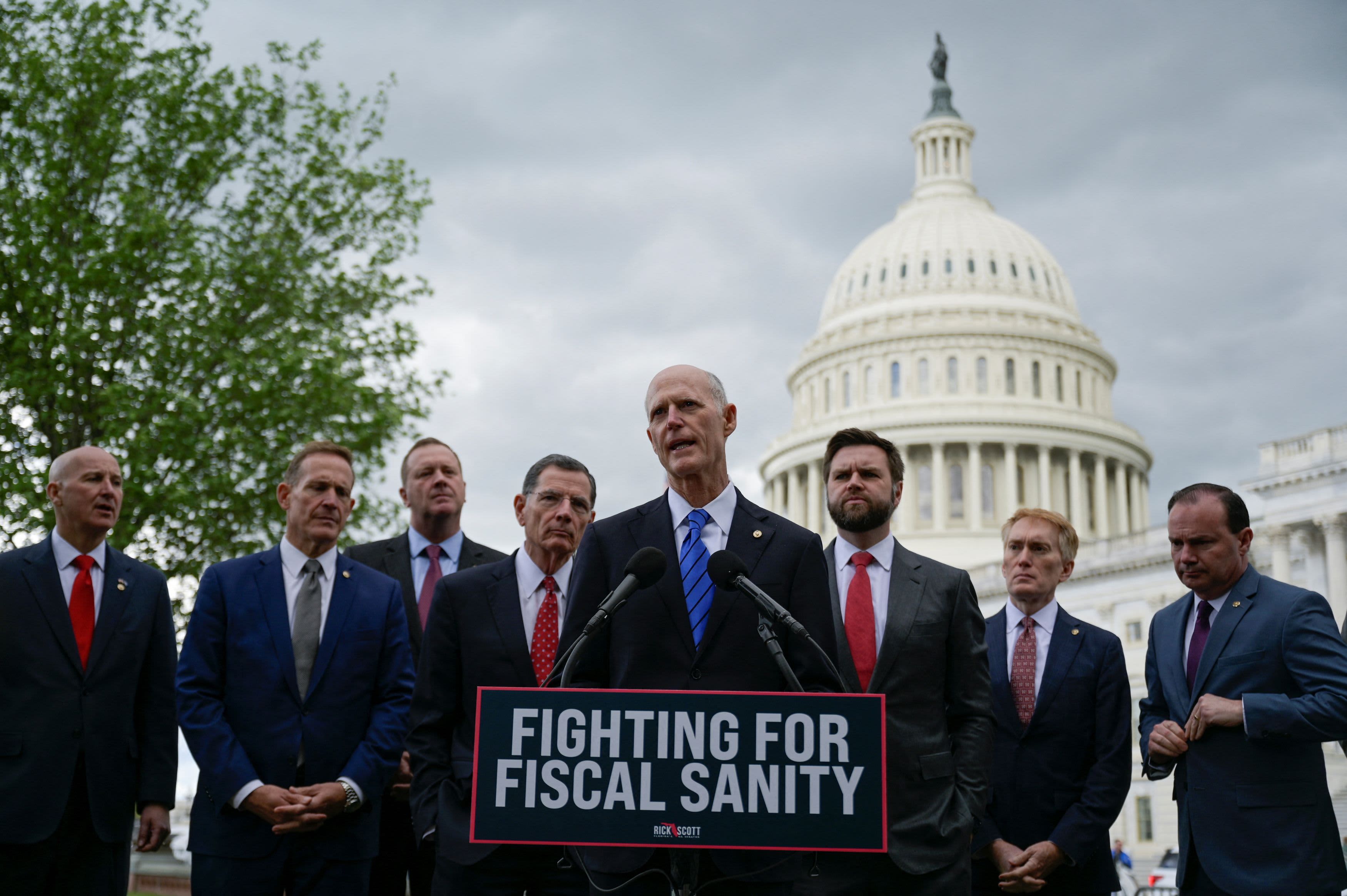Amid a stalemate on federal debt ceiling negotiations, some government officials are warning the Social Security checks sent to more than 65 million beneficiaries each month could be at risk.
On Sunday, Senate Majority Leader Chuck Schumer, D-N.Y., warned a “Social Security shutdown” could happen if the U.S. defaults on its debt.
related investing news
Treasury Secretary Janet Yellen has also voiced concerns, telling CNBC’s “Closing Bell: Overtime” on Monday that not raising the debt ceiling could cause “economic catastrophe” and put Social Security beneficiaries’ payments at risk once the government no longer has enough money to pay the bills.
The debt ceiling is the maximum amount of money the U.S. government can borrow.
More from Personal Finance:
Social Security cost-of-living adjustment could be 3.1% for 2024
Here’s the inflation breakdown for April 2023 — in one chart
What debt ceiling standoff means for money market funds
If the debt ceiling is not raised or eliminated, the government will not have enough money to pay its bills and could default on its debt.
Yellen notified Congress in January that the government would begin making payments through extraordinary measures after reaching the statutory debt limit. Recently she said the country’s ability to pay its debt obligations may expire in early June.
The pressure is on Congress to raise or suspend the debt limit before the emergency funding runs out.
“Part of the challenge here is that this is unprecedented,” said Maria Freese, senior legislative representative at the National Committee to Preserve Social Security and Medicare.
“We don’t know what the implications are of a default because we’ve never had one,” she said.
While that means there is guesswork involved, we do know some things about how Social Security beneficiaries could be affected.
Notably, some policy experts say it is unlikely we would ever get to that point.
“If there is a scenario where seniors are not getting their Social Security checks, there would be a near immediate resolution of this fight,” said Ed Mills, Washington policy analyst at Raymond James.
Social Security checks may be delayed
Experts are generally warning that checks for Social Security beneficiaries may be delayed if the government no longer has the legal authority to borrow.
The National Committee to Preserve Social Security and Medicare has warned that Social Security, Medicare, Medicaid and other payments “may not be made on time and in full” without a debt limit increase.
“Even if all we’re talking about is a delay, you could end up with significant hardship on a large number of people,” Freese said.
They may not be able to buy groceries or medications, which could have “catastrophic” consequences after even a couple weeks’ delay, she said.
Debt default vs. shutdown
It is important to keep in mind that a debt default and a government shutdown are different, Freese noted. While failure to fund the government could prompt a shutdown, not increasing or eliminating the debt ceiling may lead to a default.
“For Social Security, the implications are very, very different in those two outcomes,” Freese said.
With a government shutdown, parts of the Social Security Administration will stop, but checks, for the most part, will be automated and keep going out, she said.
With a default, however, there may be no money to send the checks out, Freese said.
Benefits are paid through two sources: payroll taxes and bonds the U.S. Department of the Treasury redeems from the Social Security trust funds. While payroll taxes will keep coming in, it is not clear whether the government will be able to come up with the cash to redeem the bonds to send out the checks, she said.
Threat to Social Security may be ‘exceptionally low’
For the U.S. to reach a point where it can no longer send out Social Security checks, it would have to cross the “x date” — the point at which it can no longer pay its obligations through extraordinary measures without raising or eliminating the debt ceiling.
Before that happens, markets will react, Mills predicted.
“Market pressure has historically also been one of the ways we have seen D.C. react in the past,” Mills said.
Consequently, the threat of Social Security checks not going out is “exceptionally low,” he added.
But it’s “what could happen if no resolution is ever met,” Mills said.
Still, it is the responsibility of members of Congress to explain the potential consequences if no action is taken, according to Mills.



